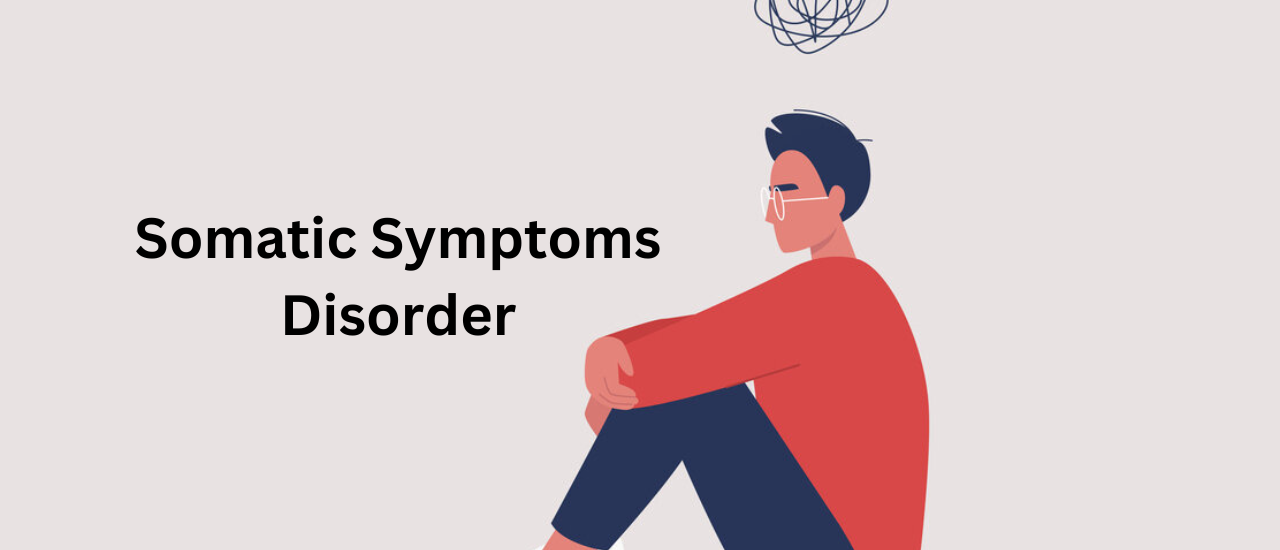


A diagnosis of somatic symptom disorder(SSD) is made when a person places a great deal of emphasis on bodily symptoms like pain, fatigue, or shortness of breath to the point where it causes them great suffering and/or functional difficulties. The person overreacts to the physical symptoms in their thoughts, feelings, and behaviors. People who suffer from somatic symptom disorder frequently don’t realize that they also have major mental health issues and mistakenly think they are physically ill. There may or may not be a physical explanation for the symptoms, such as a general medical ailment, another mental disorder, or drug usage. But they nonetheless create disproportionately high and unreasonable levels of distress.
There may or may not be a physical explanation for the symptoms, such as a general medical ailment, another mental disorder, or drug usage. But they nonetheless create disproportionately high and unreasonable levels of distress. One or more separate body systems and organs may be affected by the symptoms, such as:
Usually, SSD starts before the age of 30. Women experience it more frequently than men do. Why some persons have this syndrome is unclear. Several elements could be at play:
This disorder may be more prevalent in those with histories of physical or sexual abuse. However, not every somatic symptoms disorder(SSD) patient has a history of abuse. SSD is comparable to a medical anxiety disorder (hypochondria). At this point, people are excessively concerned about getting sick or contracting a serious disease. They fully anticipate falling ill at some point. In contrast to SSD, sickness anxiety disorder has few to no physical symptoms.
There are some potential risk factors that could raise your risk of somatic symptom disorder. These consist of:
A few risk factors for somatic symptom disorders. These risk factors consist of a background of:
When a person experiences severe, excessive concern over bodily sensations, somatic symptom disorder (SSD) results. The person feels they cannot perform various daily activities because of the intensity of their thoughts, feelings, and behaviors in relation to their symptoms.
A person with somatic symptom disorder (SSD) experiences inappropriate thoughts, feelings, and behaviors in reaction to physical symptoms and feels very upset about them. Their daily functioning and quality of life are both affected by the condition.
Stress can manifest in somatoform disorder patients as negative life events, dysfunctional interpersonal relationships, and abnormal family dynamics. Traumatic events, particularly sexual abuse, can act as stresses in people with dissociative disorders.
The propensity for negative emotions, or neuroticism, raises the risk of somatic morbidity and has been linked to somatic symptoms separate from psychological discomfort.
Talk therapy can assist the patient in altering their beliefs and actions, learning coping mechanisms for pain or other symptoms, managing stress, and enhancing functioning. If the person is also suffering from considerable anxiety or depression, antidepressant drugs may be helpful.
Someone who continually and unnecessarily worries about having a major illness is said to have hypochondriasis disorder or hypochondria. Hypochondriasis, often known as hypochondria, is also known as Illness Anxiety Disorder. Hypochondriasis is the psychological reaction to illness, not the presence or absence of the illness. The intense and ongoing fear of getting sick hinders your job and relationships.
An irregularity in the way the brain functions is what is known as a functional neurologic disorder (FND), also known as conversion disorder and functional neurologic symptom disorder, and it describes a collection of common neurological movement disorders. There is no obvious structural damage to the brain, and FND is not brought on by another condition.
This category covers circumstances in which somatic symptoms last less than six months or may be related to a condition known as pseudocyesis, which is a delusion among women that they are pregnant along with other external signs of pregnancy, such as an expanding belly, feeling of labor pains, nausea, fetal movement, changes in breasts, and cessation of menstruation.
Somatic symptom disorder can be successfully treated with cognitive behavior therapy and mindfulness-based therapy. Selected serotonin reuptake inhibitors, St. John’s wort, and amitriptyline are all successful pharmacologic therapies for somatic symptom disorders.
Somatic symptom disorder is a complicated condition that necessitates ongoing, reassuring partnerships with knowledgeable, encouraging healthcare professionals. Uncertainty and a lack of faith in one’s own ability to distinguish between healthy physiological sensations and those that indicate harm are frequently at the core of these issues. It can be very difficult for patients, families, and medical professionals to determine if new symptoms are related to a serious illness or just regular discomfort.
What Is Hypochondriasis Disorder & How To Stop It?
What Is Schizoaffective Disorder & Its Various Types Of Symptoms
Important Signs Of Mild Cognitive Impairment & Its Levels